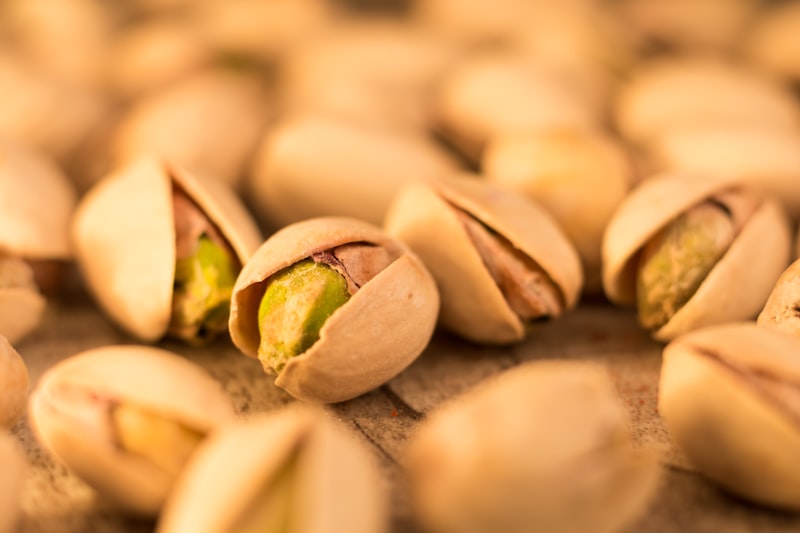First off, look for high-quality protein as the main ingredient. Just like you wouldn’t want to fill your plate with junk, your dog shouldn’t be stuck with food full of fillers and by-products. Free-range chicken, salmon, or beef should be the stars of the show. Always double-check the ingredient list—if you can’t pronounce it, chances are you don’t want it in your dog’s bowl!
Next, consider the fats. Healthy fats, like omega-3 and omega-6 fatty acids, are crucial for your dog’s skin and coat health. Think of them as the secret sauce that keeps everything shiny and vibrant. A shiny coat isn’t just appealing; it’s a sign that your pup is thriving.
Don’t forget about the veggies! Fiber from vegetables can help with digestion, much like how a salad works wonders for your own tummy. Look for ingredients like sweet potatoes, peas, and carrots to pack a nutritious punch.
And what about your dog’s specific needs? Just like humans have different diets based on age and lifestyle, dogs do too. Puppies need more calories for growth, while seniors might need something gentler on the stomach. Always consider their age, size, and any health concerns when selecting food.
Paw-sitive Choices: A Comprehensive Guide to Picking the Best Healthy Dog Food
First off, think of your dog as a little gourmet chef. Just like us, they appreciate high-quality ingredients. Look for foods that list real meat as the first ingredient. Would you want a meal that starts with “meat by-products”? I didn’t think so! Real meat is packed with the essential proteins your pup needs for energy and muscle development.

Next, remember that not all grains are bad! Whole grains like brown rice or oats can be great for digestion. It’s like giving your dog a fiber boost. And hey, those fruits and veggies? They’re more than just colorful fillers. Ingredients like sweet potatoes or blueberries can provide antioxidants that keep your dog’s immune system as strong as a bull.

Now, let’s talk about labels. If you see “grain-free,” check whether it’s really suitable for your pup. Sometimes, grain-free foods can be too rich in certain proteins, which might lead to tummy troubles—yikes! Always consult with your vet if you’re unsure whether your furry friend should go grain-free or not.
Finally, consider the size and age of your dog. Puppies need different nutrients compared to a senior pooch. It’s like how a toddler’s meal differs from Grandma’s dinner plate. Tailoring your dog’s diet to their unique needs can be a game-changer. So, next time you’re in the pet aisle, grab a bag of healthy, tail-wagging goodness that fits your dog’s lifestyle. Your furry friend will thank you with slobbery kisses!
Bowl of Health: Expert Tips for Selecting Nutritional Dog Food You Can Trust
First, look at the ingredient list. Just like we want whole foods for ourselves, dogs flourish with real ingredients, too. You want the first few items to be high-quality proteins like chicken or fish, rather than vague terms like “meat by-products.” Think of it like a gourmet meal versus mystery meat – your pup deserves the former!
Next up, check for any special dietary needs. Is your dog a small breed with a sensitive tummy? There are formulas tailored just for them! It’s kind of like shopping for clothes; you wouldn’t wear something that doesn’t fit just right, right? A great dog food should suit your pet’s unique lifestyle and health requirements.
Don’t forget about those crucial nutrients! Look for a balance of proteins, fats, carbohydrates, vitamins, and minerals. Imagine a little artist’s palette where each nutrient adds color and harmony to your dog’s health. Omega-3 fatty acids, for instance, are like the cherry on top, promoting shiny coats and healthy skin.
Lastly, trust the brands! Do a little detective work—research companies with good reputations and positive reviews. Just like you’d trust a friend’s recommendation for a restaurant, trust what other dog owners have to say. Look for transparency in sourcing and production. After all, if you wouldn’t eat it, why should your dog? By following these expert tips, you’ll be well on your way to serving up a bowl of health that both you and your pup can trust!
Healthy Tails: How to Decode Dog Food Labels for Your Furry Friend
First things first—check the ingredients list. The rule of thumb? The first ingredient should ideally be a high-quality protein source. Think chicken, beef, or fish. If it starts with “meat by-products,” you might want to reconsider—you wouldn’t want to eat a mystery meat sandwich, would you?
Next up, look for specific sources of fat. Terms like “chicken meal” or “salmon oil” signal quality over generic terms like “animal fat.” Remember, fats are fabulous for your dog’s skin and coat, just like that avocado toast you love!
Then there’s the guaranteed analysis. This might sound intimidating, but it breaks down the protein, fat, fiber, and moisture content. You’d want a substantial protein content—ideally above 20%. It’s like comparing your dog to us humans; we wouldn’t thrive on lettuce alone, right?
Don’t ignore the additives! Vitamins, minerals, and probiotics can really boost your furry friend’s health. Just like you take your daily supplements for that extra zing, your dog can benefit from these too! But steer clear of artificial colors, flavors, or preservatives; it’s like choosing junk food over a home-cooked meal.
Lastly, keep an eye out for nutritional adequacy statements. These are your gold stars, indicating that the food meets AAFCO standards. If it says “complete and balanced,” you’re on the right path to wag-worthy nutrition. So, the next time you’re cruising the pet aisle, with these tips up your sleeve, you can confidently pick the best food for your four-legged companion!
From Kibble to Raw: Navigating the Maze of Healthy Dog Food Options
When it comes to dog food, kibble is the tried-and-true option many pet owners go for. It’s convenient, often budget-friendly, and your dog likely gobbles it up without a second thought. However, have you ever paused to think about what kibble really contains? Some brands are full of fillers, preservatives, and artificial flavors that aren’t exactly what we’d consider “wholesome.”
Now, let’s chat about raw food. Picture this: in nature, dogs thrive on a diet of fresh meat, bones, and some veggies. By introducing raw food into your pup’s diet, you’re tapping into their ancestral roots. It’s like trading in fast food for a gourmet meal made with love — a total upgrade! But with all this excitement surrounding raw diets, it’s essential to approach it with caution. You wouldn’t want to throw a feast without knowing the dietary needs of your pooch, right?
Nutrition Unleashed: Essential Factors to Consider When Choosing Dog Food
Next up is the ingredient list—think of it as a sneak peek into what’s fueling your pup. Avoid foods packed with fillers and artificial additives; these are like junk food for dogs. You wouldn’t serve your little buddy a plate of chemicals, so look for whole grains, fruits, and veggies that add those essential vitamins and minerals.
It’s also crucial to consider your dog’s age, size, and activity level. A puppy on the go is a different ballgame than a laid-back senior. Just like we adjust our diets based on our lifestyle, your dog’s food should cater to their specific needs.
And let’s not forget allergies or sensitivities. If your pup has a tummy that’s jumpy after meals, you might need to steer clear of certain ingredients. Think of it as tuning into their body’s playlist—every dog has unique notes that make them feel their best.
Finally, don’t underestimate the importance of consulting with your veterinarian. They can guide you through the sea of options, helping you find that perfect recipe that keeps your furry friend wagging with joy!
Pet Parents Unite: Top 5 Ingredients to Look for in Healthy Dog Food
First up, meat should be the star of the show. Just like a hearty steak makes your mouth water, real meat like chicken, beef, or fish should be the primary ingredient. Why? Because dogs flourish on protein, which fuels their energy, muscles, and overall health.
Next, think about whole grains versus fillers. You wouldn’t want to fill your plate with empty calories, right? Well, neither does your dog! Look for dog foods that include whole grains like brown rice or oats. These grains provide essential fiber and energy without the fluff.
Now, let’s chat about fruits and veggies. Imagine a rainbow on your dog’s plate! Ingredients like sweet potatoes, blueberries, and carrots offer vital vitamins, antioxidants, and minerals. They’re nature’s candy, ensuring your pup gets a balanced diet while keeping that coat shiny.
Don’t forget about healthy fats, either. Think of them as the olive oil of your dog’s diet. Ingredients like fish oil aren’t just tasty; they support a healthy coat and joints, helping to keep your pup feeling spry as they chase squirrels at the park!
Lastly, probiotics are like a spa day for your dog’s gut! These live bacteria keep digestion smooth, making sure your pooch absorbs all those nutrients fully. So, keep an eye out for these friendly microbes in the ingredients list.
By focusing on these key ingredients, you’ll be on the right path to providing your pup with the nutritious food they deserve!





